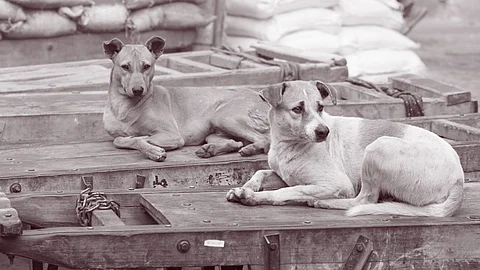

TAKING A STERN VIEW, , the Supreme Court on Monday directed civic authorities in Delhi-NCR to remove stray dogs from all localities within eight weeks and lodge them in dedicated shelter homes.
A bench of Justices J.B. Pardiwala and R. Mahadevan said that there should be “no compromise” in making streets free of stray dogs, and made it clear that no captured animal will be released back on the streets.
It also ordered contempt proceedings against any individual or organisation obstructing the capture drive.
“If any individual or organisation comes in the way of picking stray dogs or rounding them up, we will proceed to take action against any such resistance,” Justice Pardiwala warned.
The bench directed the governments of Delhi, Gurgaon, Noida, Ghaziabad, alongside Municipal Corporation of Delhi and New Delhi Municipal Council to begin the drive immediately, prioritising vulnerable localities. Authorities were told to create a dedicated “force” if necessary and ensure shelters have sufficient staff to sterilise and vaccinate the animals.
The Court further ordered setting up of a dedicated helpline to register dog-bite complaints, with offending animals to be picked up within four hours of complaint.
The Court ordered the authorities to maintain a record of all stray dogs captured and detained, CCTV monitoring, to ensure compliance and prevent any dog from being released back onto the streets.
It further ordered the authorities to publish information on where rabies vaccines are available, vaccine stock, and the monthly number of persons reporting for treatment.
Observing that the order was in public interest, the bench said, “We are not doing this for us, it is for the public interest. So, no sentiments of any nature should be involved. Action should be taken at the earliest. Pick up dogs from all localities and shift them to far-off places.”
Solicitor General Tushar Mehta appeared for the authorities, while senior advocate Gaurav Agrawal, appointed amicus curiae, made suggestions to the bench.
The court was hearing suo motu proceedings initiated on the basis of media reports about the growing menace of stray dog attacks leading to rabies. Terming the report “very disturbing and alarming”, the bench noted that the elderly and children are the most affected by rabies from dog-bite incidents.